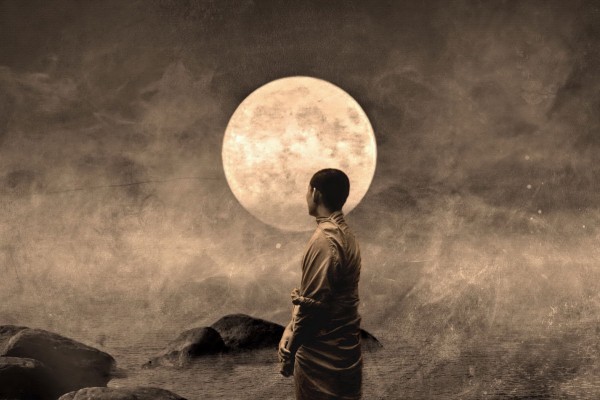Ayurvedic Oil Massage
“The body of one who uses oil massage regularly does not become affected much even if subjected to accidental injuries, or strenuous work. By using oil massage daily, a person is endowed with pleasant touch, trimmed body parts and becomes strong, charming and least affected by old age.” –Charaka Samhita Vol. 1, V: 88-89
Many people look forward to the luxury of massage, whether given by a friend or by a professional masseuse. Massage relaxes the muscles and nervous system, relieves tension in the body, and improves circulation and other internal bodily functions. Our bodies are vehicles for the work we need to accomplish in this world, and for self realization. Massage can help maintain our bodies in optimal health so that we can work with less physical and mental discomforts towards our life purpose. Massage can be costly, however. Imagine being able to reap the benefits of massage in the comfort of your own home for little or no cost on a daily basis. Abhyanga is a type of full body Ayurvedic oil massage that one can perform daily on oneself without formal massage training. Abhyanga refers to a massage that nourishes the entire body from head to toe. The word for oil in Sanskrit is sneha, which also means love. Applying oil to the body is symbolic of nurturing our cells and tissues with love. Although abhyanga can be given by certified Ayurvedic massage therapists, it can also be done at home as part of a daily morning routine. The morning routine is an essential part of an Ayurvedic lifestyle. It includes rising early, meditating, doing some gentle yoga stretches, self oil massage (abhyanga), and proper cleansing of the mouth and body. In this article, the benefits of oil massage will be described, followed by instructions on how to do self-abhyanga.
The skin is composed of seven layers, and according to Ayurveda, these seven layers correspond to the seven types of tissues found in the body. Natural oils, as opposed to manufactured skin lotion, permeate all seven layers, thus nourishing the seven tissues (blood, plasma, muscle, fat, bone, nerve, and reproductive tissues). Oils massaged into the skin permeate all seven layers within 10 minutes. Oil massage can be likened to oiling the engine of your car. If you do it regularly, your car will run at peak performance without giving you trouble. It is preventative as well as healing for already existing ailments. Human skin has 640,000 sense receptors that keep in constant contact with the brain. Healing touch sends messages to the brain and throughout the body, improving various bodily functions including the immune system, nervous system, and circulatory system. Additional benefits of abhyanga include: toning of the muscles, stimulation of toxin release from cells, calming of the nerves and stress reduction, lubrication of the joints, increased mental alertness, improved elimination of bodily toxins, softer, smoother skin, increased stamina, and better and deeper sleep at night. Abhyanga is especially grounding and helpful for people with nervous or mental vata disorders, as the moisture and warmth of the oils counteract the dryness and cold which are at the root of nervousness and anxiety.
To perform abhyanga, you need to first select an oil best suited for the season and for your body type. Choosing the wrong oil can exacerbate certain health issues, so it is recommended that you see an Ayurvedic practitioner to find out your body type and the best corresponding massage oil. In general, people with vata imbalance (feeling ungrounded, anxious, dry skin, quick thoughts and speech, underweight) benefit from heavy, warming oils like sesame in the fall and winter, or almond in the late spring and summer. Organic oils are always recommended. Ashwaganda and Bala are herbal oils recommended for people with vata imbalance. Daily oil massage can be life changing for people with vata/nervous imbalances, and the benefits and grounding effects can often be immediately felt. People with pitta imbalance (fiery, short tempered, burning indigestion, competitive) benefit from cooling, lighter oils such as coconut and sunflower, or medicated oils such as Brahmi or Bhrangaraj. People of kapha imbalance (lethargic, slow, heavy, overweight) already have physical qualities that oils have (heavy, moist) so can do oil massage in moderation. Herbal medicated oils may be best (find an already prepared kapha massage oil) or use a warming oil such as sesame or mustard.
As part of a daily routine, or at least a few times per week, apply the oil (can be heated or room temperature) before your morning shower on your entire body with fingers and palms. Apply light pressure on sensitive areas such as the stomach or heart. Give more attention and oil to areas such as soles of the feet and palms of hands where there are concentrated nerve endings. Use circular motions over rounded areas such as head and joints, and straight strokes on straight areas such as arms and legs. Spend about 5 minutes applying the oil, and leave oil on your body for at least 15 – 30 minutes. It is helpful to have an old pair of sweats, pajamas, or a robe designated for this purpose only, as the oil can stain your clothes. While the oil soaks into your body, you can take time to read, meditate, listen to soothing music, or perform another calming part of your morning routine. Before rinsing the oil off in the shower, it is recommended to take a towel (also designated for this purpose) and rub off some of the oil to avoid clogging the shower drain. Then shower as usual, and continue on with your day. Some benefits will be felt immediately, while longer term benefits such as improved internal health and naturally glowing skin will come over time. An ounce of prevention is better than a pound of cure, so take time in the morning to nurture your skin, tissues, and internal organs with oil massage.
You can purchase massage oils at many health food stores in the beauty/skin care department, or you can go online to Ayurvedic websites such as www.banyanbotanicals.com for oils that contain healing Ayurvedic herbs. You can search online for an Ayurvedic Practitioner or Spa near you to find out which oil is best for your body type. Cooking oils are not recommended as they smell quite strongly and are not created for the purpose of massage. Your health is your wealth. Hare Krishna.



